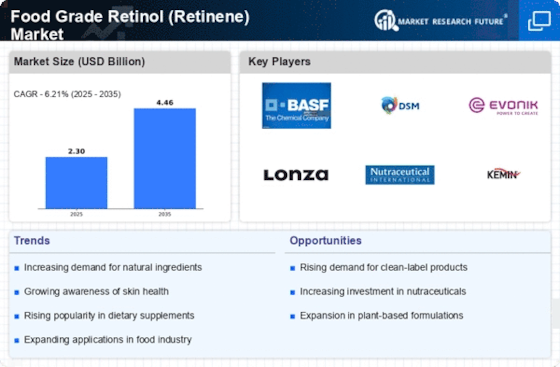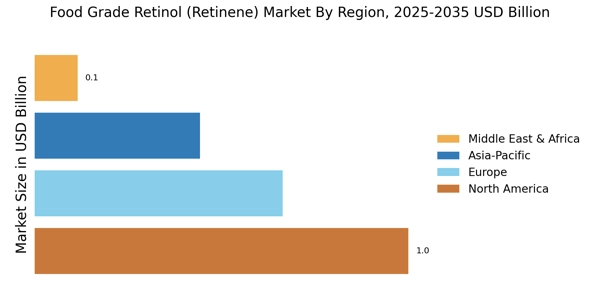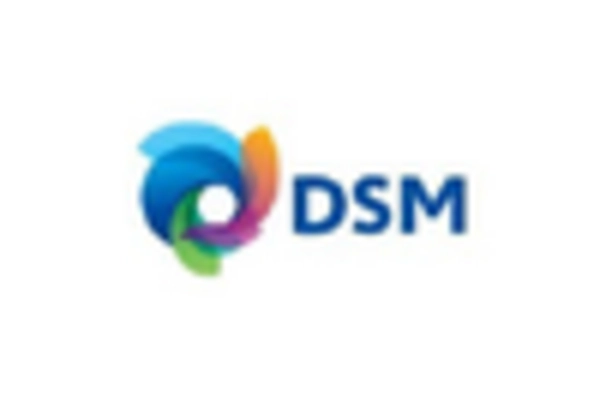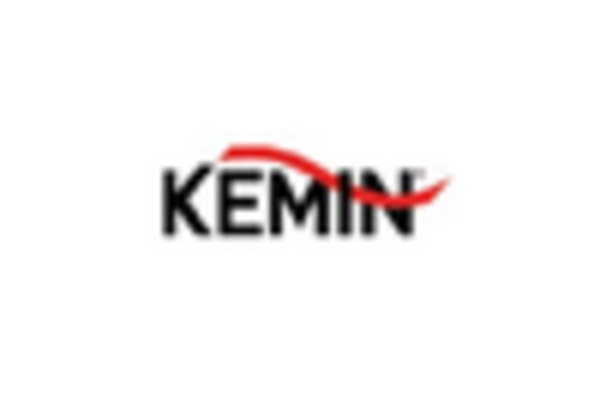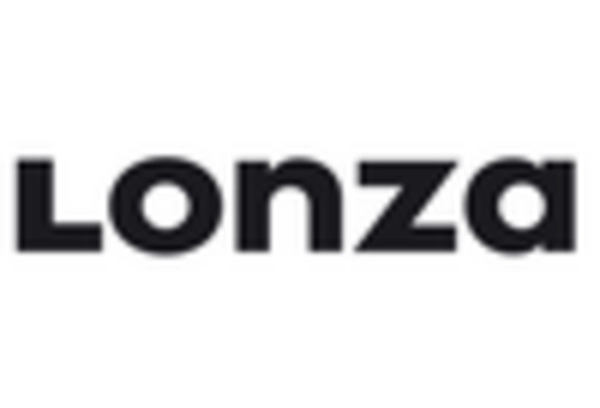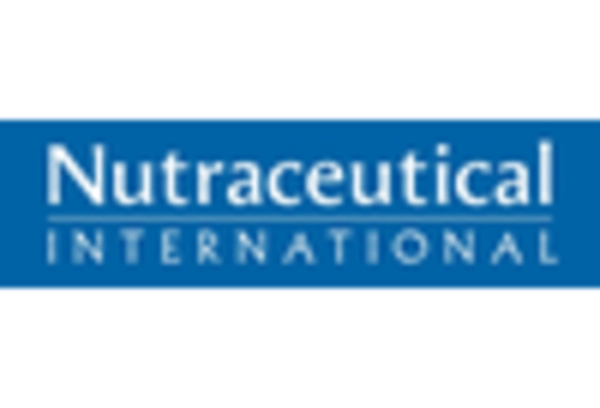Expansion of Nutraceuticals Sector
The expansion of the nutraceuticals sector is significantly influencing the Food Grade Retinol (Retinene) Market. As consumers increasingly prioritize health and wellness, the demand for dietary supplements containing food-grade retinol is on the rise. This sector's growth is driven by a shift towards preventive healthcare, where individuals seek to maintain health through nutrition rather than solely relying on pharmaceuticals. Market data indicates that the nutraceuticals industry is projected to grow at a compound annual growth rate (CAGR) of over 7% in the coming years. Consequently, this trend is likely to bolster the Food Grade Retinol (Retinene) Market, as manufacturers align their offerings with the evolving preferences of health-conscious consumers.
Rising Demand for Functional Foods
The rising demand for functional foods is a pivotal driver for the Food Grade Retinol (Retinene) Market. As consumers become more health-conscious, they are increasingly seeking foods that offer additional health benefits beyond basic nutrition. Food-grade retinol, known for its role in promoting skin health and vision, is well-positioned to meet this demand. Market data indicates that the functional foods sector is expected to grow significantly, with consumers actively looking for products that enhance their overall health. This trend is likely to encourage manufacturers to incorporate food-grade retinol into their offerings, thereby expanding the Food Grade Retinol (Retinene) Market and catering to the evolving preferences of health-oriented consumers.
Increasing Awareness of Health Benefits
The rising awareness regarding the health benefits associated with Food Grade Retinol (Retinene) is a notable driver in the market. Consumers are increasingly informed about the advantages of retinol in promoting skin health, enhancing vision, and supporting overall well-being. This growing knowledge is likely to propel demand for food-grade retinol products, as individuals seek to incorporate beneficial ingredients into their diets. The Food Grade Retinol (Retinene) Market is witnessing a shift towards products that not only serve functional purposes but also contribute to health enhancement. As a result, manufacturers are focusing on developing innovative formulations that highlight these benefits, potentially leading to increased market penetration and consumer loyalty.
Growing Interest in Clean Label Products
The growing interest in clean label products is reshaping the Food Grade Retinol (Retinene) Market. Consumers are increasingly scrutinizing ingredient lists and seeking transparency in food products. This trend is prompting manufacturers to formulate products that are free from artificial additives and preservatives, favoring natural ingredients like food-grade retinol. Market Research Future suggests that clean label products are gaining traction, with a significant percentage of consumers willing to pay a premium for transparency and quality. As a result, the Food Grade Retinol (Retinene) Market is likely to see an influx of products that emphasize clean labeling, catering to the preferences of discerning consumers.
Regulatory Support for Natural Ingredients
Regulatory support for the use of natural ingredients in food products is emerging as a crucial driver for the Food Grade Retinol (Retinene) Market. Governments and regulatory bodies are increasingly endorsing the incorporation of natural compounds in food and dietary supplements, recognizing their potential health benefits. This supportive regulatory environment encourages manufacturers to innovate and develop products that utilize food-grade retinol, thereby expanding their market offerings. The Food Grade Retinol (Retinene) Market is likely to benefit from this trend, as companies can confidently invest in research and development, knowing that their products align with regulatory standards. This alignment may enhance consumer trust and drive sales.


